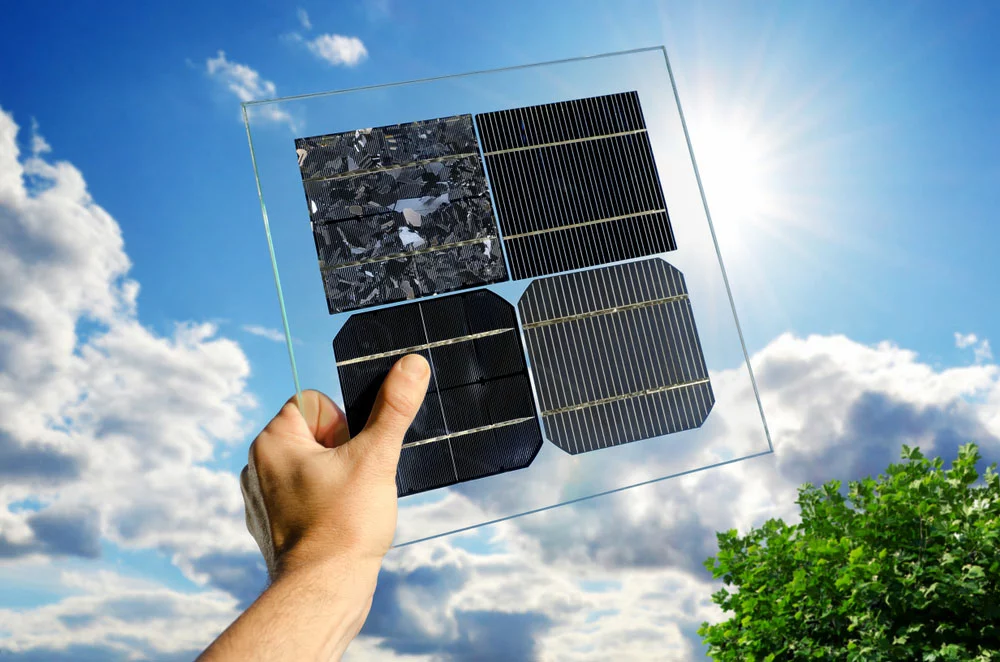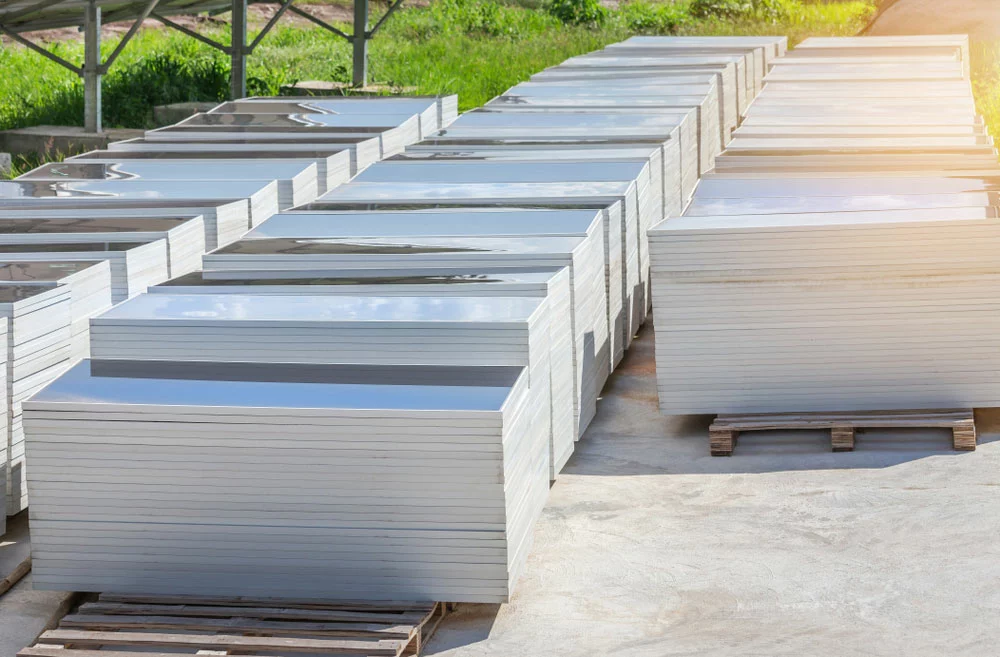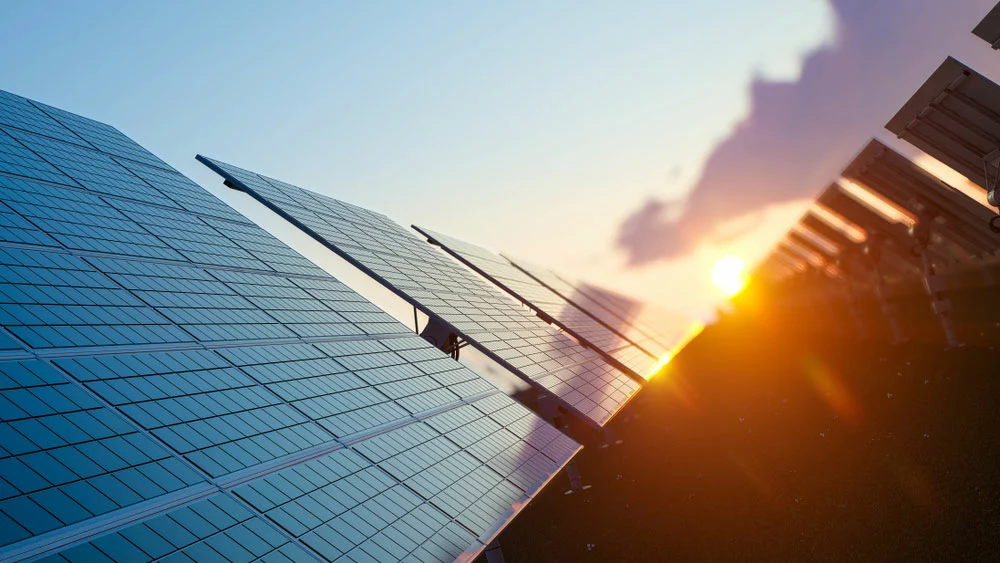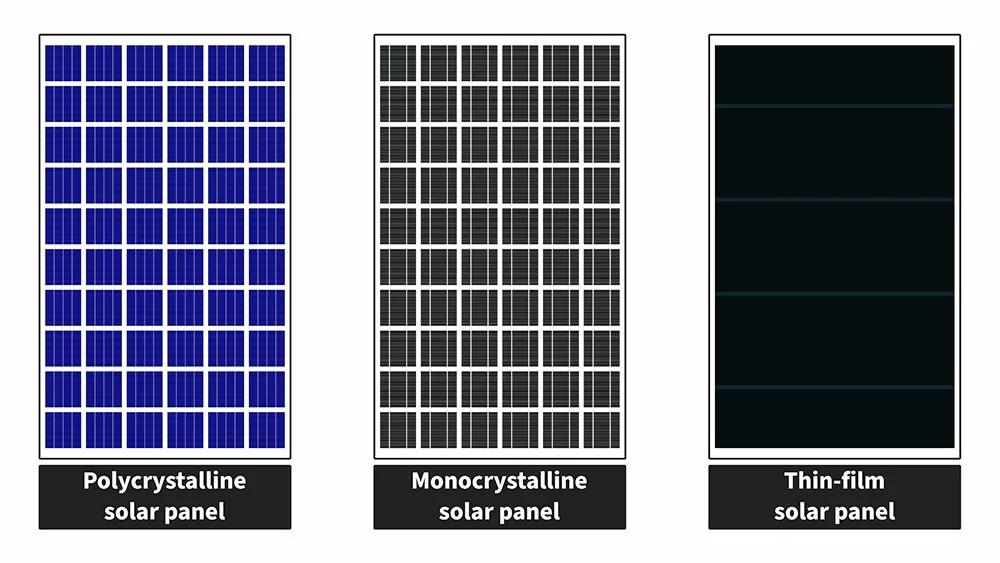With strides in solar technology, solar panels have become remarkably accessible to everyday consumers, making this an opportune time to transition into fully solar-powered smart homes. We have already seen how beneficial solar panels for street lights can be. Of course, there are different types of solar panels, each of which has strengths and weaknesses. The following guide will explore these solar panels and help you decide which is best for your house or project.
Types of Solar Panels

Hand-holding various types of solar cells
There are four major types of solar panels. Three of the main types use crystalline silicon (c-Si) solar cells. In fact, by 2013, crystalline-based solar panels accounted for at least 90% of all solar panels, making them the most common type of panels.
Monocrystalline (Single-Crystalline) Panels
Monocrystalline solar panels consist entirely of silicon. While they are space efficient and long-lasting, they are quite expensive to produce. You can identify them by their black/dark appearance.
Polycrystalline Panels
Solar panel manufacturers use different silicon crystals to produce polycrystalline solar panels. Hence, their name. Manufacturers first melt and blend these crystals. They then take this molten silicon and pour it into a square mold. This process gives the polycrystalline solar panels their shape. Nevertheless, while they are cheaper to manufacture than monocrystalline solar panels, they have a shorter lifespan and take up significantly more space. Furthermore, they’re inflexible and unsuitable for high temperatures.
Thin-Film Panels
Thin-film solar panels are typically thinner and more flexible than crystalline silicone-based panels. While thin-film solar panels aren’t as efficient as crystalline-based solar panels, they come in more sizes. This is due to their lack of a backing frame. The different types of thin-film solar panels include:
- Cadmium Telluride (CdTe)
- Amorphous silicon (a-SI)
- Copper indium gallium selenide (CIGS Panels)
Passivated Emitter and Rear Cell (PERC)
PERC solar panels are improved versions of monocrystalline solar panels. In addition to a monocrystalline layer, they feature a passivation layer in the rear cell. Nevertheless, this comes with a variety of positives. For instance, the passivation layer reflects light back into the cell, increasing the total amount of solar radiation it absorbs. It also reduces the temperature of the back sheet.
monocrystalline vs. polycrystalline vs. thin film: by Performance

Piles of Solar Panel Sheets
Now that we’ve explored the different types of solar panels let’s compare how they perform against each other. Crystalline silicon-based solar panels outperform thin-film types. Hence, they are the most popular type of panel.
Before the invention of the PERC solar panel, monocrystalline solar panels were the highest-performing type. This was due to their use of pure silicon. However, the inclusion of a passivation layer only increased their Performance.
monocrystalline vs. polycrystalline vs. thin film: by Cost

Solar panels in a solar farm
Most consumers try to balance price against efficiency when choosing a solar panel type. One of the biggest reasons you may be switching to solar panels is their cost efficiency. Thus, the price point should be an important factor. This section of the guide will list all the different types of solar panels according to their cost-per-watt.
Surprisingly, PERC solar panels are cheaper to manufacture and cost consumers less. They strike the perfect balance between price and Performance. Unsurprisingly, thin-film solar panels tend to be the cheapest panel type, while monocrystalline costs the most because of all the wasted material during manufacturing.
Other Factors to Consider When Assessing Different Types of Solar Panels

Different types of solar panels
If you plan to purchase your solar panels, simply hedging your bets on the efficiency and Cost per wattage isn’t enough. There are other factors to consider, such as:
Temperature Coefficient
The solar panel can withstand the amount of heat (or cold) before its efficiency decreases. This is a factor that consumers must consider if they live in high-temperature environments.
Fire-resistance rating
How flammable the solar panels are.
Impact resistance/hail rating
Since solar panels sit outside, they can often encounter inhospitable weather. Thus, manufacturers test to see if the solar panel can survive overly aggressive atmospheric conditions. Make sure that your solar panel has a sufficient hail rating or impact resistance.
Hurricane rating
Depending on where you live, you may want to ensure that your solar panels have ample wind resistance. On average, solar panels can withstand winds of 2400 pascals, which is essentially a category 4 hurricane on the Saffir-Simpson Scale. This is something to consider if you live in harsh environmental conditions.
Light-Induced Degradation (LID)
Crystalline silicon-based can suffer drops in efficiency ratings in the first few hours of use. This typically results from production defects where the manufacturer leaves traces of oxygen behind in the solar panel. The oxygen, solar energy, and silicon in the solar panel cause a chemical reaction that results in performance losses. You must ensure that you source your panels from trusted solar companies and manufacturers in the solar industry.
Conclusion
Houses can now go off the grid and fully rely on solar power. However, you don’t have to go to extremes and completely unplug yourself from the system, especially if you can’t afford to do so now. Instead, you can transition slowly by purchasing solar-powered lighting or water heaters (geysers). But first, you must decide what type of solar panels you want for your home. As the above guide illustrates, there are four types of solar panel options. You must consider each type carefully before making your final decision. Nevertheless, contact us if you have any LED and tech-related questions.
